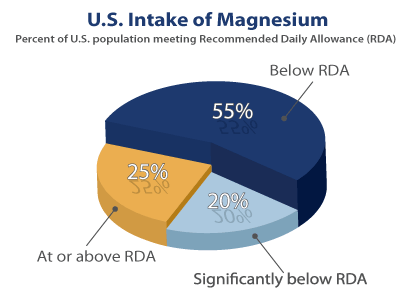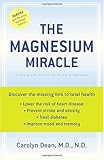I love trying to understand why people do the things they do. Everyone has a foundation to their own personal understanding, philosophy. Some people's philosophies are built on sand, others have theirs build on rock.
A philosophy built on truth. By the definition of truth, we get the understanding that there can only be one truth. For the truth is the truth. It is an absolute. I'm absolutely sure :)
Here is one of the best articles I have ever read about philosophy from a great author. Its all based on the book of Ecclesiastes.
From Ray C. Stedman:
The book of Ecclesiastes, or "the Preacher," is unique in scripture.
There is no other book like it, because it is the only book in the Bible
that reflects a human, rather than a divine, point of view. This book
is filled with error. And yet it is wholly inspired. This may confuse
some people, because many feel that inspiration is a guarantee of truth.
This is not necessarily so. Inspiration merely guarantees accuracy from
a particular point of view; if it is God's point of view it is true; if
it is man's point of view it may be true, and it may not. If it is the
Devil's point of view it may or may not be true, as well, but the
Devil's ultimate end, of course, is evil. Inspiration guarantees an
accurate reflection of these various points of view.
Therefore the Bible does have much error in it. Whenever false views
of men are quoted or set forth, the Bible is speaking error. Whenever
Satan speaks, most of his statements are in error, and even the truth
that he uses is twisted and distorted, and therefore is erroneous.
So it is quite possible to "prove" all kinds of utterly false things
by quoting the Bible. because in that sense the Bible is filled with
error. But the Bible always points out the error which it presents and
makes it clear that it is error, as in the case with this book. Because
of its remarkable character Ecclesiastes is the most misused book of the
Bible. This is the favorite book of atheists and agnostics. And many
cults love to quote this book's erroneous viewpoints and give the
impression that these are scriptural, divine words of God concerning
life.
But right away in its introduction this book is very careful to point
out that what it records is not divine truth. It presents only the
human view of life. You'll find that over and over, throughout the whole
course of Ecclesiastes, one phrase is repeated again and again: "under
the sun," "under the sun." Everything is evaluated according to
appearances alone-- this is man's point of view of reality and is
utterly exclusive of divine revelation. As such, Ecclesiastes very
accurately summarizes what man thinks.
Ecclesiastes is not atheistic; to be atheistic is to be unrealistic,
and the Bible is never unrealistic. An atheist is one who has convinced
himself by long argument that there is no God, even though every inward
testimony of his conscience and the structure of the universe around him
are constant witnesses to the fact that there is a God. For the most
part, only the educated man is an atheist. Or, the man who does not
desire to face life's realities, because he wants to convince himself
that there is no God to whom he must answer. But this book is not
atheistic, even though it is written from a humanistic point of view.
Ecclesiastes views God as men in general view God -- as a not very
vital concern of life. sort of a high-calorie dessert which you can take
or leave. There is no understanding of God as a vital, living Lord, an
authority in life with whom one can have a personal relationship.
The book opens with this introduction:
The words of the Preacher... (Ecclesiastes 1:1a RSV)
I think that it is to Martin Luther that we owe this translation of
the Hebrew word, but in context it is not the best choice. The word can
mean "preacher," but I think it is much better translated as "debater"
or "arguer," and as you read this book you will see that it is a series
of arguments set forth as man views the world around him. The debater
was none other than Solomon, the son of David, king in Jerusalem. the
wisest man who ever lived, according to Biblical record.
Solomon was in an unusual position to undertake the experiments and
investigations reflected in this book, because during the forty years of
his reign there was utter peace in the kingdom of Judah and Israel.
There were no tribes around stirring up warfare or strife. Since he did
not have to bother himself with military life, he had all the time he
needed to pursue his investigations into the meaning of life.
Furthermore, he had all the wealth he needed, and he had a keen,
logical, discerning mind which had gained for him the reputation as the
wisest man in the world. He had all that he needed, and he set himself
to discover what life is all about. Therefore, the value of Ecclesiastes
is that it sets forth life from the standpoint of the natural man,
apart from divine revelation.
As you read through the book you'll notice that it all centers on this text (verse 2):
Vanity of vanities, says the Debater, vanity of vanities! All is vanity. Ecclesiastes 1:2 RSV)
Unfortunately, that word "vanity" doesn't mean today what it used to.
At least, we seldom use it in quite the same sense. To us, "vanity" is
conceit over personal looks. We think that a woman who spends a half
hour primping before a mirror every time she goes through her bedroom is
a victim of vanity -- or a man, if he does the same thing. And of
course that is true. I think of the woman who said to her pastor one
day, "I must confess to you, pastor, that I am suffering from a terrible
sin. I suffer from the sin of vanity. Every morning before I leave, I
admire myself in the mirror for half an hour." He said, "My dear lady,
it is not the sin of vanity you are suffering from, it is the sin of
imagination." But "vanity" here in Ecclesiastes means emptiness,
futility, meaninglessness. The debater has completed his survey of life,
and he gives this conclusion at the beginning of the book. He says
everything is futile, empty, meaningless -- there is no sense to
anything.
He supports this conclusion with a series of arguments that he has
gleaned after sifting through the philosophies of life. And perhaps the
most interesting thing about this book is that all the philosophies by
which men have attempted to live are gathered together here. There is
nothing new under the sun, the book says -- and how true that is. Here
we are, almost thirty centuries removed from the time of the writing of
this book, and yet nothing more has been produced in the world or in the
ideas of men than what is reflected right here. First there is what we
might call the mechanistic view, or the scientific outlook if you
prefer. This outlook sees the universe as nothing but a great, grinding
machine, and the Debater in his investigation of it is lost in the
monotonous repetition of nature's processes. And yet, in many ways, this
is a most remarkable passage. Some revelations here are of scientific
import and were written long before men of science ever discovered these
things. Notice, for instance, the circuit of the wind:
The wind blows to the south,
and goes round to the north;
round and round goes the wind,
and on its circuits the wind returns. (Ecclesiastes 1:6 RSV)
Men didn't discover the circuit of the wind until centuries after
this was written. And then there is the evaporation cycle of circulating
waters:
All streams run to the sea,
but the sea is not full;
to the place where the streams flow,
there they flow again. (Ecclesiastes 1:7 RSV)
That is, the rivers run down to the sea, evaporate, come back up to
the mountains again as rainfall, and run down to the sea again. The
writer has discovered this in his observation of nature, and he says all
this is vanity, empty. He feels the utter weariness of this endless
circuit. So what is his outlook? Life goes on and we are lost in the
meaninglessness of the universe. Nothing is to be heard but the clanking
of gears. You may recognize this philosophy to be very common today.
and the end of it is emptiness. What is man in the midst of a universe
like that? Just a tiny speck with no meaning or significance at all.
In chapter 2 the writer examines the philosophy of hedonism -- the
pursuit of pleasure as the chief end of life. What gives life meaning?
Well, millions today say, "Just enjoy yourself! Have a good time, live
it up, do as you like, seek pleasure. That's the purpose of living.
That's why we are here!" But the Debater says:
I said to myself, "Come now, I will make a test of pleasure; enjoy
yourself." But behold, this also was vanity. (Ecclesiastes 2:1 RSV)
Then he proceeds to itemize pleasure. He says that first he tried
pleasure in the form of laughter, or mirth. Maybe this is what is needed
to make life thoroughly enjoyable. So he sought out opportunities to
give himself to genial, gracious, laughing, happy company. But he says
that after a time, even this yielded a weariness of spirit.
Then he says he tried the acquisition of possessions; perhaps meaning comes from wealth:
So I became great and surpassed all who were before me in Jerusalem;
also my wisdom remained with me. And whatever my eyes desired I did not
keep from them; (Ecclesiastes 2:9-10a RSV)
And he gave himself to the accumulation of wealth and possessions.
(How many are living on that level today!) He says it too was emptiness
of spirit and didn't satisfy his longing.
And then he says:
I turned to consider wisdom and madness and folly[That is, he
considered opposites in the realm of ideas]; for what can the man do who
comes after the king? (Ecclesiastes 2:12a RSV)
Then I saw that wisdom excels folly as light excels darkness. (Ecclesiastes 2:13a RSV)
He says, "This is better, at least. Here is something that is
interesting: pursuing all these various ideas about life. Ah, but," he
says. "I found that it comes out at the same place." The fool and the
wise man alike die. And as far as their lives are concerned, one is as
utterly insignificant as the other. It doesn't make any difference.
Then, he comes to this terrible conclusion:
So I hated life, because what is done under the sun was grievous to
me; for all is vanity and a striving after wind. (Ecclesiastes 2:17 RSV)
Here is a man who has given himself to pleasure, to possessions, and
to the pursuit of wisdom in the realm of ideas, and he says, "I hated
life. I hated all my toil. I turned about and gave my heart up to
despair." That is what he came to, isn't it? Just as it is what anyone
will come to: only despair.
Then in chapter 3 he views life from what we might call the
existential viewpoint. That is a popular term today. It is fashionable
to believe in existentialism and it is, of course, thought to be
something new on the stage of world ideas. But it is nothing new at all.
It is as old as the thinking of man. Actually, we might call this
viewpoint fatalism, because there is always a fatalistic element in
existentialism.
We in America can hardly realize why existential thinking has so
powerfully gripped the minds of people in our world. The popularity of
existentialism was born at the end of World War II, when Europe was left
in shambles. The great cities of Europe were in ruins, and all that men
had previously pinned their hopes on -- in government and religion, as
they knew it -- had been powerless to arrest the catastrophe and
terrible chaos of World War II. At the end of it, men were left with
utterly shattered hopes concerning what they had believed in. They asked
one another, "What can we trust? We can't trust religion. It did
nothing to stem the awful tide of tyranny under Hitler. And we can't
trust government, because it is the very tool of such power. So what can
we trust?" And somebody suggested that the only thing that we can trust
is our own reactions to life as we live through things. We experience
feelings and reactions to events, and even though no two of us may have
the same reaction, at least each person's reaction is real to him. So
they said, "All we can really trust is our own reaction to events, to
existence." And that is existentialism.
Now this writer says, "I tried that. I discovered that I reacted to
events, that I had certain inescapable experiences in life." We read
that there is:
a time to be born, and a time to die;
a time to plant, and a time to pluck up what is planted;
a time to kill, and a time to heal;
a time to break down, and a time to build up;
a time to weep ...[and so on.] (Ecclesiastes 3:2-4a RSV)
The writer sees that all these events come upon us. And he sees also
that man has a desire for something deeper, for finding significance,
for finding meaning in life:
He has made everything beautiful in its time; also he has put eternity into man's mind, (Ecclesiastes 3:11a RSV)
In other words, man can never rest with simply external explanations
of things. He has to look deeper. Eternity is in his heart. And this
writer says he saw all this. He saw that events of life are inescapable
and are experienced by all men -- but he saw that all men go to one
place when it is all over. All turn to dust.
And there is nothing better for man than to enjoy his work,
...for that is his lot; who can bring him to see what will be after him? (Ecclesiastes 3:22b RSV)
He sees futility. hopelessness. What's the use?
In chapter 4 he turns to capitalism, of all things. Here he sets
forth the competitive enterprise of life. When we Americans hear the
word "capitalism" perhaps we think it is a wonderful word. We think it
describes the vigorous young insurance executive out to join the
million-dollars-a-month club, or some high-powered executive in business
who is building his own empire. We admire this. We say. "Capital is the
answer."
Remember that the word of God always ultimately looks at life as it
really is. And capitalism is not a final answer to things. It may be a
better answer than communism, and I'm convinced that it is, but this
writer says he tried this competitive-enterprise approach and saw that
it resulted in injustices and oppression. And he discovered that selfish
motivation lies behind it, resulting in inequities. So, he says it all
comes to the same thing:
Better is a poor and wise youth than an old and foolish king, who will no longer take advice, (Ecclesiastes 4:13 RSV)
What good does it do to get to the top of the heap when a young man
at the bottom with nothing but a few smart ideas can surge ahead of you?
What's the difference? What is the good of it all?
Then in chapter 5 he tries religion -- religion which recognizes that
God exists -- and he tries to do good and to be good. And yet he points
out that there is no practical value to it. Religious people can do
very unethical things and oppress the poor. Furthermore, there is no
power in deadly, religious formalism to arrest wrongs or change
inequities. He says, then, that religion of that sort doesn't work
either. It comes to the same thing -- emptiness and vanity.
Chapter 6 sets forth his experiments along the line of materialism --
the philosophy of "the good life." His conclusion is that even though a
man has everything,
If a man begets a hundred children[children are wealth to the
Hebrew], and lives many years, so that the days of his years are many,
but he does not enjoy life's good things, and also has no burial, I say
that an untimely birth is better off than he. (Ecclesiastes 6:3 RSV)
If you have everything, but in trying to satisfy yourself you
discover that there is still a craving that these things can't meet,
then you are no better off than if you had never been born. It all comes
out to the same thing.
In chapter 7 Solomon approaches life from the standpoint of stoicism
-- a cultivated indifference to events -- and his conclusion is that in
order to view life this way, aim for a happy medium. Be moderate in all
things:
In my vain life I have seen everything; there is a righteous man who
perishes in his righteousness[righteousness doesn't always pay], and
there is a wicked man who prolongs his life in his evil-doing[wickedness
sometimes does pay, judging by evidence "under the sun"]. (Ecclesiastes
7:15 RSV)
Therefore he says:
Be not righteous overmuch, and do not make yourself over wise; why
should you destroy yourself? Be not wicked overmuch, neither be a fool;
why should you die before your time? (Ecclesiastes 7:16-17 RSV)
That is, aim for a happy medium. How many times have you heard these
verses quoted as exactly reflecting what the Bible teaches? But, rather,
these are the words of a man looking at life who says the best policy
is "Moderation in all things" -- avoid extremes as much as possible,
don't volunteer for anything, try just to get through. That is his
viewpoint.
Chapters 8 through 10 and the first eight verses of chapter 11 are a
connected discourse examining what might be referred to as the wisdom of
the world, or the common-sense view of life. In chapter 8 anyone
approaching life from this point of view is exhorted to master the power
structures of the world in which he lives. He says, "Try to understand
who is an authority and who isn't, and do your best to be on the right
side at the right time." That is his philosophy. You recognize that,
don't you? Here is his conclusion:
...then I saw all the work of God, that man cannot find out the work
that is done under the sun. However much man may toil in seeking, he
will not find it out; even though a wise man claims to know, he cannot
find it out. (Ecclesiastes 8:17 RSV)
Now he says, "I don't offer you much hope along this line, but if you
get on the right side and get in good with the powers that be, you will
at least get along pretty well, but you won't find any answers to life.
It's all futility, don't you see?"
Then in chapter 9 he examines the world's value judgments and points out again that they all come to the same thing:
Again I saw that under the sun the race is not to the swift, nor the
battle to the strong, nor bread to the wise, nor riches to the
intelligent, nor favor to the men of skill; but time and chance happen
to them all. (Ecclesiastes 9:11 RSV)
Here he says, "You see these men who say, like Benjamin Franklin,
'Early to bed, early to rise, makes a man healthy, wealthy, and wise'
and 'A penny saved is a penny earned'. All these things," he says, "have
an aura of wisdom about them -- but they don't really work. I have seen
times when the race was not to the swift and the battle didn't go to
the strong nor bread to the wise nor riches to the intelligent. It
doesn't always work. I have seen some very stupid rich people." So these
worldly values and judgments are not accurate, and they too all end in
death:
For man does not know his time. life fish which are taken in an evil
net, and like birds which are caught in a snare[suddenly, unexpectedly,
with a heart attack] so the sons of men are snared at an evil time, when
it suddenly falls upon them. (Ecclesiastes 9:12 RSV)
What difference, then, do worldly values make?
In chapter 10 he exhorts us to maintain discretion in life -- be
temperate, diligent, cautious, accommodating -- try to get by as best
you can. But this is only an enlightened expression of selfishness,
which is the motive underlying it all. We read in chapter 11 that
success is simply a matter of diligence -- in order to get something out
of life, you need to work and apply yourself:
In the morning sow your seed, and at evening withhold not your hand;
for you do not know which will prosper, this or that, or whether both
alike will be good. (Ecclesiastes 11:6 RSV)
But then he concludes:
For if a man lives many years, let him rejoice in them all; but let
him remember that the days of darkness will be many. All that comes is
vanity. (Ecclesiastes 11:8 RSV)
You see? He has proved his case hasn't he? All the way through it is
the same thing. Life lived apart from God all comes out to the same
thing.
At this point comes the change in viewpoint, the recognition that
life is meaningful and significant when the person of God is enthroned
in it. This is Solomon's true conclusion to all of his findings, and it
begins this way:
Rejoice, O young man, in your youth, and let your heart cheer you in
the days of your youth; walk in the ways of your heart and the sight of
your eyes. But know that for all these things God will bring you into
judgment. (Ecclesiastes 11:9 RSV)
That doesn't mean punishment. It means examination: God will bring
you into an examination of your life. But "Rejoice!" (That is Solomon's
very word!) The Debater's final conclusion is thus directly opposite his
previous conclusion. Six times in this account you find him playing one
string on his violin, over and over again. The only thing he has to say
to the man who approaches life without a genuine commitment to God, is
this: "Eat. drink and be merry. for tomorrow you must die."
There is nothing better for a man than that he should eat and drink, and find enjoyment in his toil. (Ecclesiastes 2:24 RSV)
Again:
So I saw that there is nothing better than that a man should enjoy
his work, for that is his lot; who can bring him to see what will be
after him. (Ecclesiastes 3:22 RSV)
And again:
What I have seen to be good and fitting is to eat and drink and find
enjoyment in all the toil with which one toils under the sun the few
days of his life which God has given him, for this is his lot.
(Ecclesiastes 5:18 RSV)
Similarly:
And I commend enjoyment, for man has no good thing under the sun but
to eat, and drink, and enjoy himself, for this will go with him in his
toil through the days of life which God gives him under the sun.
(Ecclesiastes 8:15 RSV))
Also:
Go, eat your bread with enjoyment, and drink your wine with a merry
heart; for God has already approved what you do. (Ecclesiastes 9:7 RSV)
And yet again:
Bread is made for laughter, and wine gladdens life, and money answer everything. (Ecclesiastes 10:19 RSV)
Practical isn't it? And devilish. Do you see? When you hear people
talking this way today, when you see worldly man thinking and acting on
the basis of "Eat, drink and be merry, for tomorrow we die," don't blame
him. What else can he say? This is the inevitable conclusion of any
approach to life that erases God from the picture. And there is nothing
more descriptive of utterly blind pessimism than those words. Think of
it. Eat, drink and be merry. In other words, live like an animal. This
denies the glory of manliness and manhood. It reduces man to the level
of the animal. It is the most hopeless statement one can ever make.
"What is life? Nothing at all. Utterly insignificant. Without any
meaning. Utterly futile. All that we can do, therefore, is to make the
best of it. Eat, drink and be merry. Life goes out like a candle flame
in the end." Utter pessimism rules in a life that is lived without God.
Now contrast that with what the writer says in the last chapter:
Remember also your Creator in the days of your youth, (Ecclesiastes 12:1a RSV)
And he goes on to describe in a beautiful, poetic passage what death is:
Before the silver cord is snapped, or the golden bowl is broken, (Ecclesiastes 12:6a RSV)
And he teaches this final conclusion:
The end of the matter; all has been heard. (Ecclesiastes 12:13a RSV)
What is his final advice?
Fear God, and keep his commandments: for this is the whole of man. Ecclesiastes 12:13)
"Wait!" you protest. "You left out a word! It says,
'this is the whole duty of man.'"
No, I didn't leave it out. The translators put it in. That word
doesn't belong there. The Hebrew says, "this is the whole of man" or
"this is what makes man whole," if you like. "Fear God." Now that
doesn't mean that you are to be afraid of him, but to have a loving
respect that obeys him.
Fear God, and keep his commandments; for this is the whole of man.
This is what makes man whole. And the secret is to enthrone God in
the days of your youth. If you want to find the secret of living so that
the heart is satisfied and the spirit is enriched and fulfilled
according to God's intention for you, then "Remember also your Creator
in the days of your youth, before the evil days come." Enthrone God in
the center of your life and you will discover all that God has intended
your life to be. And you will be able to rejoice all the days of your
life. I can remember well when as a teenager I would wonder from time to
time whether these Christian ideas that I knew were right, and would
feel allured and enticed by other ways of thinking. And I felt the awful
uncertainty, of not knowing which was right. What is the answer to
life's questions? Looking back upon that time I have great sympathy for
young people; I see their deep inner desire, just as I felt it then, not
to waste their lives but to live significantly. Every young person
feels that. But now, from the perspective of more than thirty years, I
can say that God in grace led me to commit myself, as it says in
Proverbs:
Trust in the Lord with all your heart,
and do not rely on your own insight.
In all your ways acknowledge him,
and he will make straight your paths. (Proverbs 3:5- 6 RSV)
I sing with the hymn, "Through many dangers, toils and snares I have
already come," but I can also say, "Tis grace has brought me safe thus
far, and grace will lead me home." I can testify to the fact that the
Debater's conclusion is apt. Life is fulfilled only when God is
enthroned in the center of an individual's life and that individual acts
in obedience to his ruler. But the philosophy that begins and exists
and ends in the dust, and then says that the dust is everything -- that
this is all life is intended to be, that vanity is everything -- is
utter folly. The Debater's conclusion is that everything is indeed
vanity unless you put God in the center of life.
Prayer:
Thank you, Father for these words of wisdom, and for having recorded
it for us in this ancient book so that in our hunger for fulfillment we
need not go down all these paths ourselves. We can believe this word to
be genuine and accurate, and build our lives upon it. We pray that our
young people will have the courage to believe this word and to act upon
it -- to enthrone you as the Lord of life, and thereby live their lives
in grace and strength and beauty. We pray in Christ's name. Amen.







